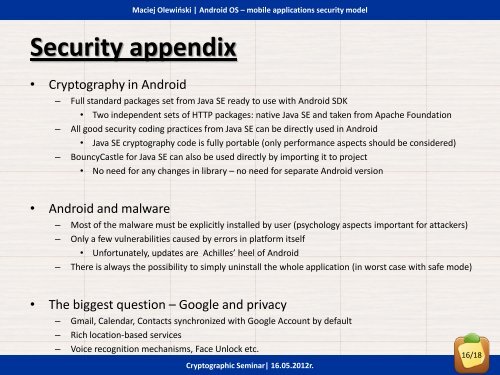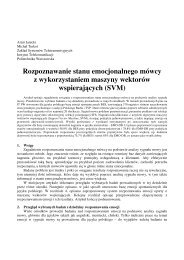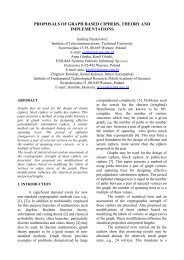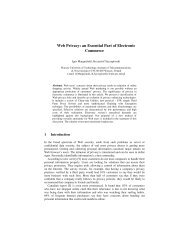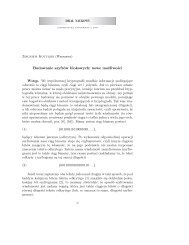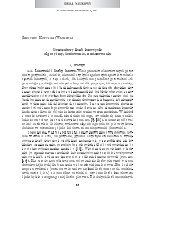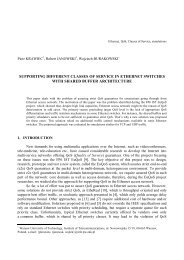Mobile applications security â Android OS (case study) - cygnus
Mobile applications security â Android OS (case study) - cygnus
Mobile applications security â Android OS (case study) - cygnus
Create successful ePaper yourself
Turn your PDF publications into a flip-book with our unique Google optimized e-Paper software.
Maciej Olewiński | <strong>Android</strong> <strong>OS</strong> – mobile <strong>applications</strong> <strong>security</strong> model<br />
Security appendix<br />
• Cryptography in <strong>Android</strong><br />
– Full standard packages set from Java SE ready to use with <strong>Android</strong> SDK<br />
• Two independent sets of HTTP packages: native Java SE and taken from Apache Foundation<br />
– All good <strong>security</strong> coding practices from Java SE can be directly used in <strong>Android</strong><br />
• Java SE cryptography code is fully portable (only performance aspects should be considered)<br />
– BouncyCastle for Java SE can also be used directly by importing it to project<br />
• No need for any changes in library – no need for separate <strong>Android</strong> version<br />
• <strong>Android</strong> and malware<br />
– Most of the malware must be explicitly installed by user (psychology aspects important for attackers)<br />
– Only a few vulnerabilities caused by errors in platform itself<br />
• Unfortunately, updates are Achilles’ heel of <strong>Android</strong><br />
– There is always the possibility to simply uninstall the whole application (in worst <strong>case</strong> with safe mode)<br />
• The biggest question – Google and privacy<br />
– Gmail, Calendar, Contacts synchronized with Google Account by default<br />
– Rich location-based services<br />
– Voice recognition mechanisms, Face Unlock etc.<br />
Cryptographic Seminar| 16.05.2012r.<br />
16/18


